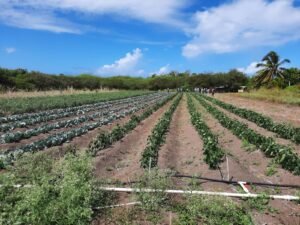Agriculture Education in Chad: An Overview. Agriculture is the backbone of Chad’s economy, contributing to half of the country’s Gross Domestic Product (GDP) and employing approximately 80% of its workforce. Despite the critical role of agriculture in the nation’s economic life, many farmers and agricultural workers have not been able to leverage scientific methods and innovations due to limited access to formal agricultural education. As Chad seeks to diversify its economy and increase agricultural productivity, agricultural education has become increasingly vital. This article aims to discuss the status, importance, challenges, and future prospects of agricultural education in Chad.
Agriculture Education in Chad: An Overview
Status of Agricultural Education in Chad
Agriculture education in Chad typically occurs in two broad settings: formal and informal. Informal agricultural education happens predominantly in the field and at home, with skills and knowledge passed down from generation to generation. Conversely, formal agricultural education in Chad is offered at several levels, including primary, secondary, and tertiary levels.
At the primary and secondary levels, basic agricultural principles are incorporated into the national curriculum, albeit marginally. The objective is to sensitize students to the importance of agriculture in the national economy and introduce them to basic agricultural practices. However, the formalization and deepening of agricultural education occur at tertiary levels in universities, polytechnics, and other vocational institutions.

Chad hosts several tertiary institutions, notably the University of N’Djamena, the Higher Institute of the Sahel at the University of Maroua, and the Polytechnic School of Moundou, where formal agricultural education is provided. These institutions offer courses in various agricultural fields like agronomy, animal husbandry, horticulture, soil science, agribusiness, and agricultural engineering. While these programs have helped train a new generation of agricultural professionals, their reach remains limited due to a lack of adequate resources.
Importance of Agricultural Education in Chad
Improving agricultural education is central to Chad’s agricultural transformation and, consequently, its economic development. First, agricultural education equips farmers and agricultural workers with skills to improve productivity. These skills include knowledge of modern farming techniques, understanding soil types, efficient water use, pest and disease management, and post-harvest handling.
Secondly, agricultural education promotes innovation and research in agriculture. It encourages the adoption and development of new technologies that can significantly improve farming practices. This aspect is especially crucial in the face of climate change, where innovative, sustainable, and climate-smart farming practices are necessary for the survival of agriculture.
Thirdly, agricultural education has a crucial role in agribusiness development. With the right skills and knowledge, individuals can leverage opportunities in agricultural value chains. They can establish or work in agro-processing industries, thereby creating jobs and contributing to economic development.

Challenges of Agricultural Education in Chad
While the importance of agricultural education in Chad is clear, several challenges limit its effectiveness. First, the insufficient funding to agriculture education has significantly hampered its progress. This has resulted in inadequate facilities, insufficient qualified staff, and limited research opportunities.
Secondly, the curriculum often doesn’t match the local agricultural context. Much of the agricultural education offered is not adapted to local conditions and needs, making it less relevant and applicable to students and farmers.
Thirdly, there is a lack of coordination between different stakeholders, including government agencies, educational institutions, and non-governmental organizations. This disjointed approach often leads to duplication of efforts and wasted resources.
Lastly, Chad’s rural communities, where the bulk of agricultural activities take place, have limited access to agricultural education. This is due to both geographical distances and socioeconomic barriers, including poverty and illiteracy.
Future Prospects and Recommendations
The future of agriculture in Chad is tied to the improvement of agricultural education. As the country seeks to transform its agricultural sector, the following recommendations could be instrumental:
- Increase investment: Chad’s government and international partners should increase investment in agricultural education. This could entail constructing more agricultural training institutions, providing scholarships for agricultural studies, and facilitating research and innovation in agriculture.
- Revise curriculum: The agricultural education curriculum should be revised to reflect local agricultural conditions and challenges. This would make the education more relevant and applicable to the students and farmers.
- Promote collaboration: Stakeholders in agricultural education should work together to avoid duplication of efforts and maximize resources. This collaboration could be in the form of sharing research findings, pooling resources for common programs, and harmonizing strategies and goals.
- Expand access to rural areas: Efforts should be made to take agricultural education to rural areas. This could be achieved by establishing agricultural training centers in rural areas, using mobile technology to disseminate agricultural knowledge, and implementing adult education programs to overcome illiteracy barriers.

Conclusion
Agriculture education in Chad is at a crossroads. The importance of agriculture to Chad’s economy necessitates an equally significant focus on agricultural education. While the challenges are enormous, they are not insurmountable. With increased investment, curriculum revision, stakeholder collaboration, and expansion to rural areas, Chad can transform its agricultural education and, by extension, its agriculture sector. Such an achievement would not only ensure food security but also drive the nation towards its broader economic development goals.
